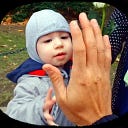Hello Class rereader. If you have certain thoughts about anyone in your life. Wouldn’t it be cool if you could reread them. What I mean by that is if they have a small body of work where you can sit down and read for 30 minutes, or 60, or 90 minutes before you go to bed.
Then you can make a judgement. After reading that work by their work. You shall know them by their fruit you shall know them. I think that’s a quote from the Bible. I googled it. I guess it’s in Matthew, I would like to do some more thinking about this, because it’s interesting. I digress to read someone is to judge, not the person but the work, the creative output, their creation, the fruits of the creative labor.
And if you have that body of work then you can reread them as a person, artist, creative creator, creating. and I think it’s a nice thought to characterize in terms of story plot arc, evolution, you know, a natural progression from act one to act two to act three part one part two part three, beginning middle and end. And then you can reread their story, ideally in the future you can read the second episode. And
The third chapter. The fourth volume. Every year that you’re alive is a chapter in your life. So each year you can think about a different title. Shared journaling is something that my mom introduced to me when I was young, I believe she also did it with my brother. I thought that was really helpful to me to have this private shared journal where we spoke, and I think I probably talked about being angry.
That’s probably where I couldn’t find it. Because it wasn’t too acceptable to be angry, it was more like, if there was conflict, then one person had to say sorry. And that’s very unequal. You know, there’s not much fairness, especially when it’s almost always disputed, who started it was the famous question.
And it was very subjective and the parents were never there. So, who started, it was a debate that usually goes back into history, days before weeks before maybe even years before. And that’s what storytelling is for the depth and the time and the skill of telling your story. And doing it in a way that is cumulative, and comprehensive and expansive, so that you can collect a lot of data points. Check points in the story, information, knowledge, observations of your life. And then you can connect the dots, and that’s really what storytelling is the collecting and connecting of events scenes, ideas, thoughts, feelings, but but it’s really more about your thoughts, you know, if you were able to track your thoughts.
That would be the ultimate stream of conscious stream of comfort. You know, if we had access to this thought tracker, you know, thought counter word counter. It’s great to be able to see what words are floating around in your mind, a vocabulary. An extensive vocabulary, a vocabulary that is aware of itself and aware of which words in culture, in society in the community in the media are being used. Often, and which words are being used less less often. We sometimes call the game buzzword bingo.
And then within that word cloud brain word cloud. You can choose for yourself which are the most important words that you would like to use more often. And I think each person could make a list of five or 10 of their top words, you know, maybe that there, they are using and then words that they would like to use more of, and also words that they would like to use less of this is very granular. There’s a lot of analysis, but more practically measurement of the positive emotional negative emotional linguistic spectrum because each word carries a certain rating of emotion. Sorry, guys. So anyways I didn’t say sorry guys.
That was a miss read or miss, heard by the transcription technology. I take full responsibility, obviously, because when you’re doing this, it’s it’s good to look at the transcription a little bit. And if you pick up on which words are not being understood by the technology. I think in the future you can reprogram. But for now, possibly this is even a speech practice to practice and unseating words. Because pronunciation does help when you’re speaking to lots of different people from lots of different areas of the world with different ears.
See I’m looking at the transcription and I can see that it did not understand annunciation. There we go, it got it that time. All right 10 minutes 1000 words. That’s my writing practice for the day, possibly the week, you know, I think it’s a good to start out with 1000 words per week. And then there’s a leaderboard and a reader board. And I’m going to begin to offer this to the people in my life that I communicate with think it’s a good way to go deep with people to share a journal. So, this is an homage to my mama. So good creative idea that she came up with. And so I thank her deeply. To infinity and beyond. Ciao for now.
-fun p.
Transcribed by @otter.ai
893 words.
